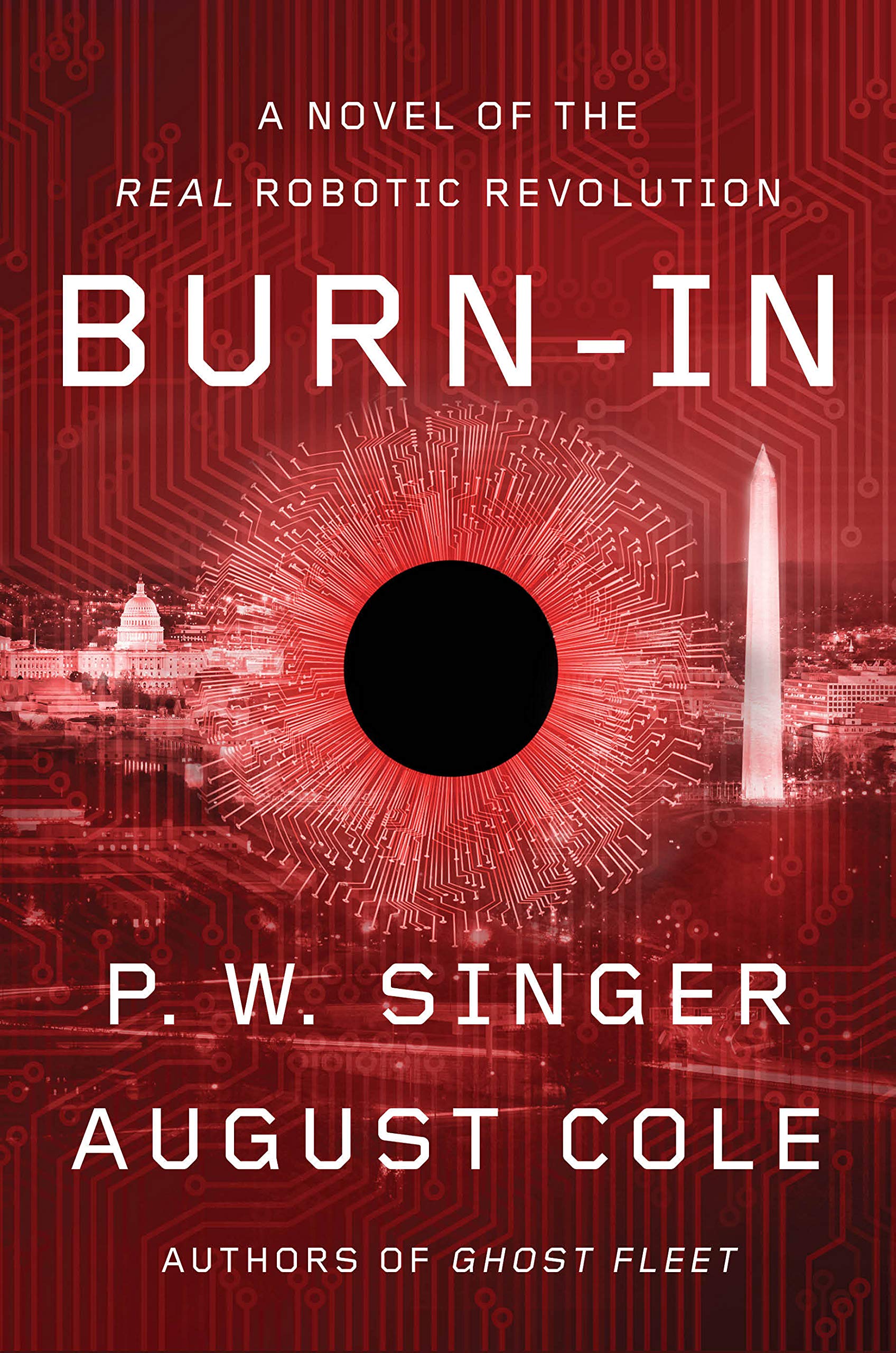Want to know what a future with robots and artificial intelligence looks like?
Let’s just say that if the "2001: A Space Odyssey" author Arthur C. Clarke were still alive, he might be stunned — or perhaps even a little frightened — by today’s challenges.
“We are seeing a change in the human role relative to our machines," said Peter W. SingerSinger is also a professor of practice in the Center on the Future of War and the School of Politics and Global Studies, where he teaches in the online MA in global security program. He also is a strategist and senior fellow at New America and the author of multiple award-winning books., co-author of the new book “Burn-In: A Novel of the Real Robotic Revolution” and one of the world's leading experts on 21st-century security issues. "We’ve seen AI disrupt everything from finance to medicine, and we’re only at the start of this."
Singer presented a virtual talk on May 27 as part of his work this year with ASU’s Center on the Future of War, a partnership between the university and New America, a Washington-based think tank.
"Burn-In" by P. W. Singer and August Cole.
“We’re at the space where the cutting edge of hardware and software are crashing together … the trends towards automation, AI and robotics were already there before the coronavirus but all data points to them now being drastically accelerated by it.”
Co-authored with August Cole, “Burn-In” is a techno-thriller about cyber terrorism and a fact-based tour of tomorrow. While it is a novel, Singer (who goes by the pen name of P. W. Singer) said it’s also a work of nonfiction culled from his years of research on AI, robotics, terrorism and the military.
“Peter Singer is one of the most original and significant thought leaders on national and international security issues. He also has the uncanny ability to write books about subjects just before everyone else realizes their importance, from child soldiers to private military contractors to the weaponization of social media,” said Daniel Rothenberg, a professor of practice in the School of Politics and Global Studies who co-directs ASU’s Center on the Future of War. “Now, he has written a techno-thriller about robotics and artificial intelligence which draws attention to very real threats policymakers and the public need to take seriously.”
Singer said big tech offers a utopian view of our future, but “Burn-In” explores the dystopian outcomes of the rapidly expanding influence of artificial intelligence, robots and related technologies in the military and greater society. And now, in light of the COVID-19 pandemic, he sees a rapid acceleration of automation, remote work, machines replacing people and other changes in a variety of fields.
“We’ve pushed forward to a level where we never believed we’d be at,” Singer said. “In a couple of weeks, telemedicine has moved forward to where the industry thought it would be 10 years from now.” He added that robots have been used during the pandemic to enforce curfews, deliver groceries and clean hospitals and subways.
“The point of this is that after this outbreak is hopefully done with, we're not going back (to normal society) a hundred percent,” Singer said.
Singer believes we’re on the verge of a new industrial age involving three key trends: radical changes in what work means, including massive job displacement; profound ethical, moral and legal questions emerging as a result of new technologies; and the rise of distinct and transformative types of security vulnerabilities.
Regarding job displacement, Singer cited several studies that state automation will replace anywhere from 9% to 47% of current occupations in the next two decades. He said even the best case scenario is troubling.
“Even if you take the most optimistic view at 9%, it is a really big deal for the economic and society at large,” Singer said. “This is a different kind of industrial revolution.”
He added that just as the last industrial revolution created massive advances, it also destroyed entire industries. These types of changes, Singer explained, produce “economic winners and economic losers at every level.”
When it comes to security vulnerabilities, life imitating art can get downright scary, Singer said.
Last month, hackers made several intrusion attempts to change chlorine levels at wastewater treatment plants, water pumping stations and sewers in Israel. The cyberattack was successfully thwarted Singer said, but technology can provide new types of attacks and crimes as well as expose serious systemic vulnerabilities.
“If you think that small business and local water government treatment facilities in the U.S. have better cybersecurity than the Israeli government,” Singer said, “I have really bad news for you.”
Singer said that AI and technology present large challenges and that it would be wise for leaders to think how to deal with it in the short term rather than the distant future. He said Americans are typically “technologically optimistic” but cautioned there’s a flip side: After all, the robot revolution is no longer the stuff of novels or science fiction.
“’The Terminator’ and ‘The Matrix’ — you name it — would be fine if it stayed in science fiction,” Singer said, “except that now it shapes the future.”
Top photo courtesy of iStock and Getty Images
More Science and technology

ASU at the heart of the state's revitalized microelectronics industry
A stronger local economy, more reliable technology, and a future where our computers and devices do the impossible: that’s the transformation ASU is driving through its microelectronics research…

Breakthrough copper alloy achieves unprecedented high-temperature performance
A team of researchers from Arizona State University, the U.S. Army Research Laboratory, Lehigh University and Louisiana State University has developed a groundbreaking high-temperature copper alloy…

4 ASU researchers named senior members of the National Academy of Inventors
The National Academy of Inventors recently named four Arizona State University researchers as senior members to the prestigious organization.Professor Qiang Chen and associate professors Matthew…



